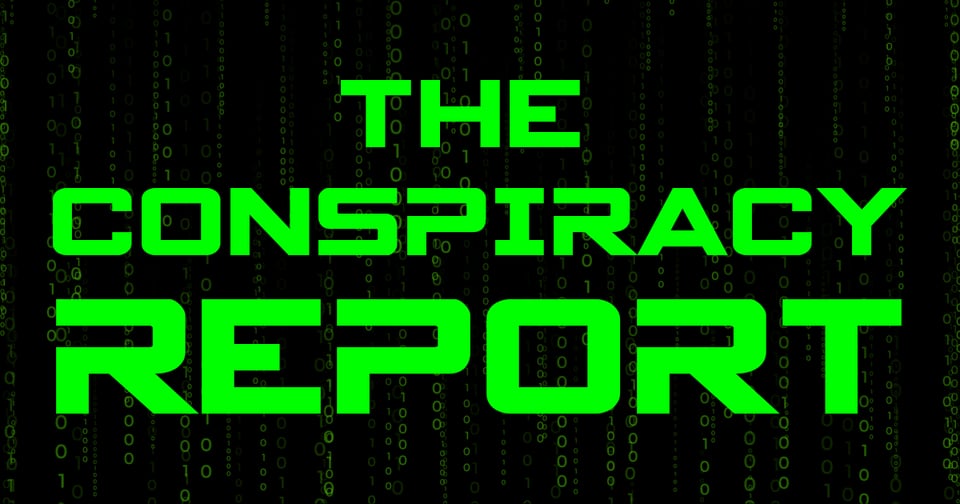
By Egon E Mosum
If there’s one law that’s constant throughout the land, it is Murphy’s Law — whatever can go wrong, will go wrong.
In consideration of Mr. Murphy, we obtain insurance.
Life insurance, health insurance, property and casualty insurance, errors and omissions, all kinds of insurance that will supposedly defend us and pay off when we are damaged by some covered incident, or liable to some other person for damages.
The operative word in the preceding paragraph is ‘supposedly.’
First, let’s realize how insurance companies really make money. Of course, they charge us outrageous premiums for the coverage they are ‘supposed’ to provide. But more importantly, they use those premiums for mortgage lending and stock investment.
They are primarily interested in interest, and devoted to dividends.
Then comes a time, when the pesky customer suffers a loss and calls his broker to make sure he’s covered.
The insurance company then (at times), does its best to make sure they either deny coverage, or minimize their payouts.
With respect to health insurance coverage denials, it got to the point that the routine practice of just saying no when it came to coverage led to the Chief Executive Officer of United HealthCare being summarily assassinated in the street. (Had he only been wounded, one may speculate if United HealthCare would have denied him coverage for treatment).
Let’s start from the beginning, with the weasel language contained in just about every policy — language that’s vague and open to interpretation. When the insurance company is the interpreter, it often leads to a denial of coverage.
Crypto's "Once Per Cycle" Wealth-Building Moment Is Here

We’ve entered the next phase of the crypto cycle—where smart capital moves early and retail follows late. With fundamentals stronger than ever and institutional adoption accelerating, the window to act is now. While others wait for certainty, the informed few are positioning for outsized gains.
Get my #1 Coin to Buy During the Dip guide—your edge in this cycle, for just $3.
Straight from the insurance adjuster’s mouth, ‘Insurance policies are replete with weasel words.’[1]
In that article from the Greenspan Company Adjusters, they posit that a possible reason for the use of vague terms in a policy when it comes to what is covered is that ‘insurers intentionally use vague and ambiguous terms in order to have the ability to interpret coverage once claims are presented.’[2]
Of course, the insurance company is going to interpret in its favor, meaning at least an initial coverage denial, or a provision for the minimum it can get away with without triggering bad faith litigation. Of course, since they often deal in bad faith, litigation ensues. (Pun intended).
In an April 2024 essay on bad faith litigation issues, the lawyer authors of a FindLaw article delineated the types of tricks the insurers use to treat themselves at the expense of the policy holder (and premium payor).
It’s not unheard of for insurance companies to delay claim investigations, and delay, delay, delay, before they might have to pay.
(In fact, the majority of personal injury cases might not be settled until a jury has been picked and the judge in chambers knocks the heads of opposing sides together to obtain a settlement).
That can take years until there is a payout. Meanwhile, the insurance company is earning money on the reserve set aside.
Readers of this article might have experienced an initial denial of a claim until the covered party persists or pursues litigation. One sees this often with auto accident cases. The investigations are inadequate, or documents forwarded are ‘misplaced’ and asked for again.
Then there are times that the company does not fully inform the covered party as to the extent of coverage notification times for losses are kept short in a policy. Miss the notification date, get the coverage denied.[3]
One tactic many might be familiar with are early lowball offers to desperate individuals. They do that with the knowledge that in a certain percentage of cases, consumers are forced to go for the quick payout, even though it is nowhere near proper compensation for losses suffered.
The insurance companies often discourage a covered party from using an attorney, because should the covered party learn the tricks of the trade, the price to settle will be significantly higher for the insurance company.
The abuses have come so early and often that most states have enacted laws under the heading of the Unfair Claims Settlement Practices Act or UCSPA. These are state, not federal laws.
The UCSPA regulates insurance carriers’ actions related to three separate categories – claims investigations, claims responses, and bad faith practices.[4]
One of the areas of insurance which most people have been recently made of where bad faith is business as usual is in health insurance coverage.
In 2023, ‘approximately 21% of people with employer-sponsored insurance and 20% of those with marketplace insurance reported denied claims.’[5]
A 2024 survey found that ‘nearly 15% of medical claims submitted to private payers for reimbursement were initially denied.’[6]
United Health Care, in 2023, was tied for the top position in coverage denials, denying one in three in network claims.[7]
Perhaps it’s no great surprise that in December 2024, someone expressed their dissatisfaction with this bad faith pattern of denials, resulting in the assassination of the company’s Chief Executive Officer.
If the author may be permitted a personal story as to these types of abuse, when my brother died in a supermarket suddenly, he was taken by a police ambulance to a hospital and pronounced dead. The 2009 bill for the transportation was over eight hundred dollars, and the insurance company initially denied coverage on the grounds that he did not first seek approval, and there was no indication that this was a medical emergency.
Since your author was at the time an attorney at law, I contacted the insurance company and explained that since my brother was dead at the time, he was not able to first obtain permission to have his corpse transported to a hospital to officially become dead. I further pointed out that death can indicate a prior medical emergency.
I then remind them of the profession indicated on my letterhead, and was able to convince them to pay for the transportation.
But what if I were a layman? What if I didn’t know the nature of the game, and was intimidated by a large insurance company?
It is often the policy of those issuing the policy to also issue a denial of coverage at first, with full knowledge that not everyone is well versed in their appeal rights. They know a significant percentage won’t appeal these denials, saving money for the insurance company so they can use it to invest.
WHY YOU SHOULD CARE
You drive a car, and you can get into an accident and suffer property damage and personal injury. On the other hand, the other driver in the other car might suffer the same. You need insurance coverage for that car — in many states it is mandatory.
You may own real property which can be damaged by weather, burn down, or be vandalized. You carry insurance to pay for losses which may take place from these events.
You can get sick, or a member of your family can get sick. You may need medical attention and hospitalization, which, but for insurance, could easily bankrupt you.
You carry that insurance to protect you from that event.
But, when it comes time to get the benefit you’ve paid for, the insurance company is no longer a company with a cartoon dog, a clever song, or two hands joined to help you.
It can become hands involved with a tug of war over coverage dollars, and when it’s the big money insurance company against little old you, the odds are not stacked in your favor.
Especially when you consider the money the insurance industry spends with politicians to influence legislation. Members of the public must use their power of numbers to ‘educate’ their representatives of the need for greater protection from the insurance racket.
More legislation is needed, perhaps a uniform version on the federal level of the Unfair Claims Settlement Practices Act with beefed up penalties for the bad faith practices in which insurance companies often seem to engage.
Sources:
[1] The Greenspan Company Adjusters https://www.greenspanai.com/news-and-events/a-private-adjusters-perspective-tergiversation-weasel-words-and-your-policy/
[2] IBID.
[3] INSURANCE COMPANY BAD FAITH TACTICS Harton & Bendere 4/2/24 FINDLAW https://www.findlaw.com/consumer/insurance/insurance-company-bad-faith-tactics-and-examples.html
[4] LAW FIRM OF MATTHEW SHARP ESQ. WEBSITE https://mattsharplaw.com/news/unfair-claims-settlement/
[5] Breaking down claim denial rates by healthcare payer LaPointe 1/9/25 TECH TARGET https://www.techtarget.com/revcyclemanagement/feature/Breaking-down-claim-denial-rates-by-healthcare-payer
[6] IBID.
[7] IBID.
